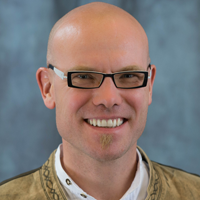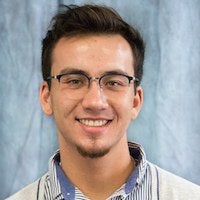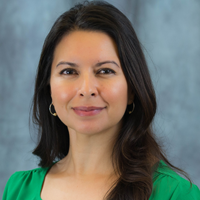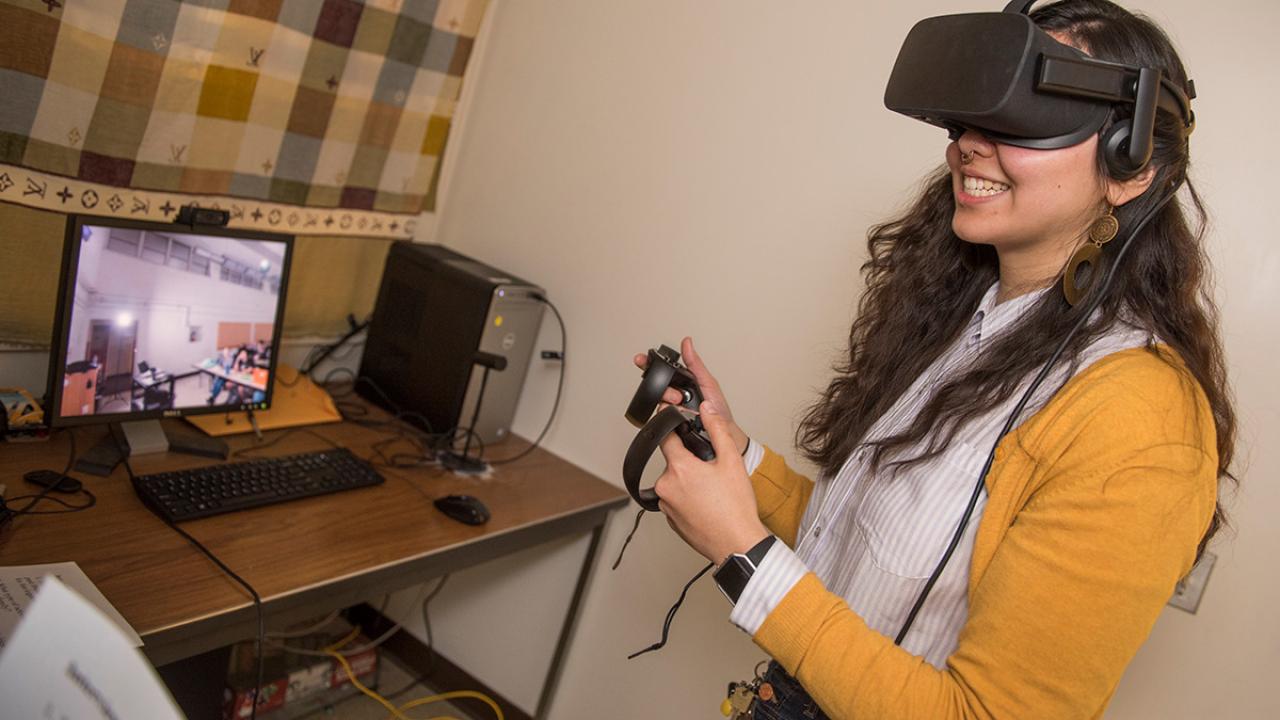If you think studying communication is mostly for people who want to pursue careers in public relations, it’s time to update your thinking. Think data, think digital, think virtual, think about how much you interact with the world via your smart phone.
To be sure, a communication major is still excellent preparation for PR professionals — as many Aggie alumni can attest. But the UC Davis undergraduate program in communication reflects an approach that’s as future-forward as you are.
In addition to studying traditional topics of interpersonal, group, organizational and mass communication, you also can choose from courses like “Digital Technology and Social Change,” “Children, Adolescents and the Media,” “Interpersonal Technologies,” “Social Media” and “Video Games and Virtual Environments.”
Studying those topics is a natural fit for a generation that grew up with digital technology, says Shengling “Wilburn” Wang, a senior double majoring in economics and communication. “It’s part of our lifestyle,” Wang said.
Study global impacts of communication technology
Understanding the global impacts of communication technology can be your focus of study for a quarter — or an entire academic career.

Assistant Professor Martin Hilbert is a former United Nations economic affairs officer who studies the effects of big data on society. In a video trailer for his online course “Digital Technology and Social Change,” Hilbert sums up some of the ways the digital age is transforming our lives:
“It changes the way the economy works, including the labor market that you’re about to enter. It revolutionizes government and public administration. It modernizes cultural production, entertainment. It transforms the health sector. It changes the way people find and fall in love. It triggers political revolutions. And, last but not least, it seems to be changing education — proof of concept being that I’m talking to you through a video recording.”
It’s important, Hilbert says, to have conceptual frameworks for understanding what’s going on today to participate in shaping the future.
Courses in statistics, symbolic logic, social sciences
In addition to communication courses, UC Davis undergraduate majors are required to take statistics, either an introductory computer course or symbolic logic, and an array of social science courses (psychology, sociology, and either linguistics or anthropology).
Faculty in the Department of Communication study communication processes through the lens of the quantitative social sciences, including computational social science.
Their research involves sifting through data and experiments to study international communication networks, social networks in massive multiplayer online games, peer production on Wikipedia, the use of mobile apps to treat depression and online health communication, among other topics.
Their work gives undergraduate students lots of opportunities to participate in research.

Michael Carter ’17
A course on computer-mediated communication from Associate Professor Jorge Peña inspired Michael to develop an honors project on how Facebook posts affect user perceptions of themselves and other people.
He liked his studies so much that he’s now in the UC Davis doctoral program. He said eventually he would like to help K-12 schools develop curricula and apps for improving students’ personal interactions — online or offline.
Alumni Careers
Read about our communication graduates and their jobs:
- Chinsin Sim ’14, who works for Robinhood, a stock-trading application in Palo Alto, where he helps recruit top talent to the company
- Brandon Padilla ’16, who double majored with managerial economics and now works as a sales representative for Anheuser-Busch
“I want to provide people with the tools they need to succeed socially,” Michael says. “I feel digital technology is a means for accomplishing that … I want people to connect. It’s important for our psychological well-being.”
Senior Katlyn Hanf
Katlyn, a senior communication major from Turlock who hopes to go into public affairs or marketing, found her niche in organizational communication and public relations classes. “I liked thinking about persuasive communication, that kind of thing.”
When Katlyn started at UC Davis, she thought she was going to major in an agricultural or environmental science. But she found herself gravitating toward humanities and social sciences courses, and loved communication for its breadth. This year, she is president of a new student communication club. (Check it out on Facebook.)
Alumni have array of careers
Alumni have gone into an array of careers — journalism, social media and social network services, public relations, administration, sales, management, politics and government, law, education and social work.

“I feel this has always been a strong department, in one way or another,” said Jeanette Ruiz ’97, Ph.D. ’15, now a tenure-track lecturer.
“Currently, our department is at the forefront of where the field is going,” Robert Bell, chair of the Department of Communication as well as an expert on health communication, says, noting the popular major is only going to become more relevant.
“This isn’t a fad,” he said. “Technology is going to become a more pervasive part of our lives. This is a fundamental change in the way humans communicate with each other because of technology.”
Kathleen Holder writes about the social sciences for the UC Davis College of Letters and Science. She majored in history, which taught her the research, writing and thinking skills she uses nearly every day.
